They were all children under protection when SARS broke out in 2013 in China. Now they have inherited the spirit from the older generations and risked their lives to guard the nation.
During the COVID-19 fight, the generations who were born after 1990 and 2000 have emerged as an important force. Over 12,000 medics are “post-90s” among more than 42,000 medical staff rushing to central China’s Hubei Province to support local hospitals.
President Xi Jinping said during his inspection in Wuhan that “they were often considered as delicate generations in the past, though now they have become the main force on the frontline of this battle, with no fear for hard work and sacrifice.”
When answering a letter from post-90s Party members of the medical team sent by Peking University to assist the battle in Hubei Province, Xi said they had demonstrated with their deeds that the Chinese youth of the new era could be entrusted with great missions.
Here are some stories of the post-90s who fight the COVID-19.
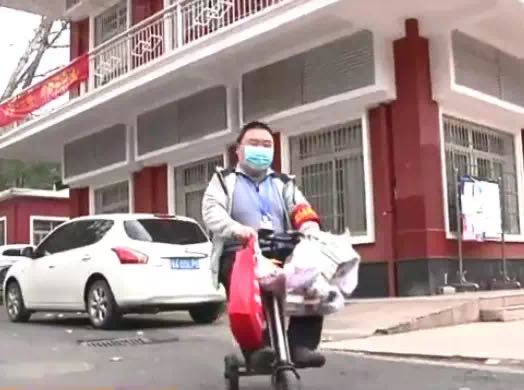
Wu Dongbin, 29, a disabled community worker, helped to deliver materials for local residents with his mini electric vehicle.
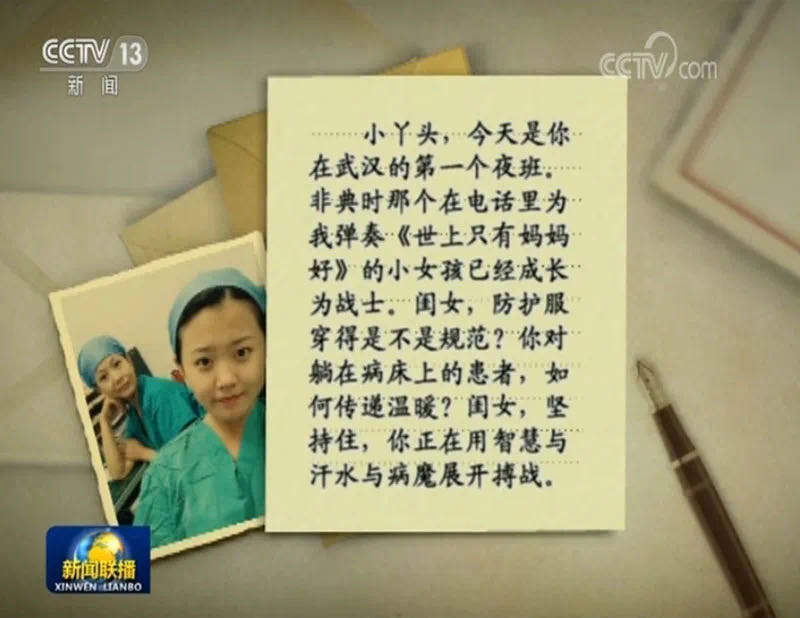
Li Jiachen, whose mother fought SARS 17 years ago as a medical worker, followed her mother’s example and joined the medical team to support Hubei Province. She received encouragement from her mother after finishing the first night shift in Wuhan at 3 am on February 3.
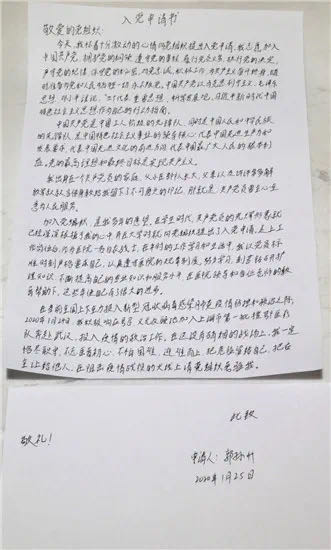
On hearing the rally cry, Guo Sunsheng, a nurse who was having a reunion dinner on Chinese Lunar New Year’s Eve, decided to rush to Wuhan to fight the COVID-19. After leaving his child of under one month old, he arrived in Wuhan and wrote his CPC membership application the first night there.
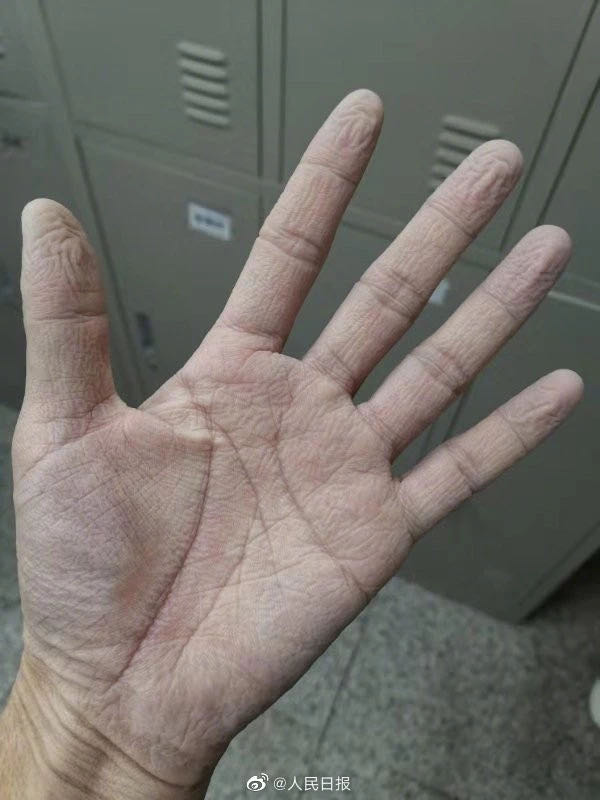
Wang Tao, a 28-year-old nurse, took a photo of his hands when he took off medical gloves after work. He has been used to such physical pain, saying that “Hands will become like this after being soaked in sweat for a long time. The hands of my colleagues and I are usually like this.”
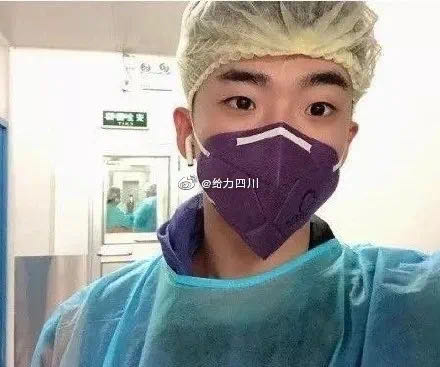
Yu Senle, 18-year-old, volunteered to participate in mask production with 12-hour-long night shifts and finished counting and checking 5,000 masks. He has also become a volunteer at highway checkpoints in early March.
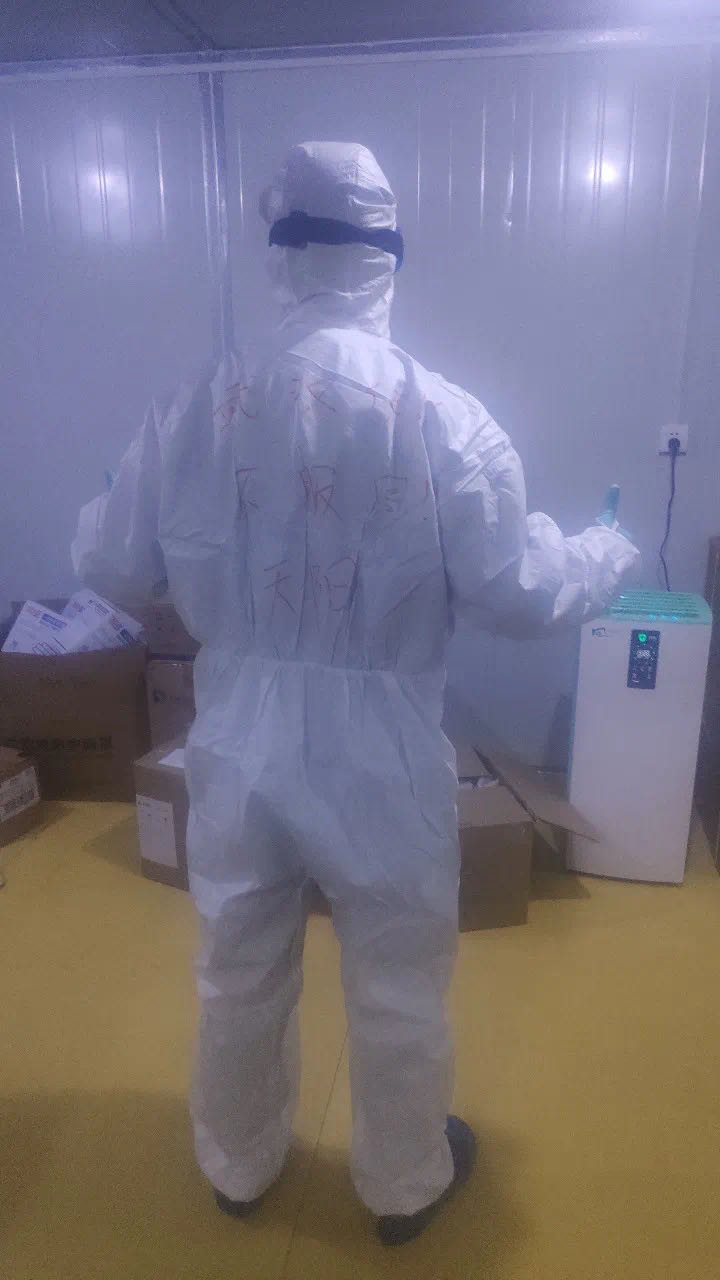
Yu Tianyang, a 19-year-old student, applied as a volunteer after knowing the shortage of manpower in Zhuankou makeshift hospital in Wuhan. He worked five night shifts straight during eight days in the makeshift hospital. On the back of his protective suit, he wrote “Wuhan people won’t surrender.”
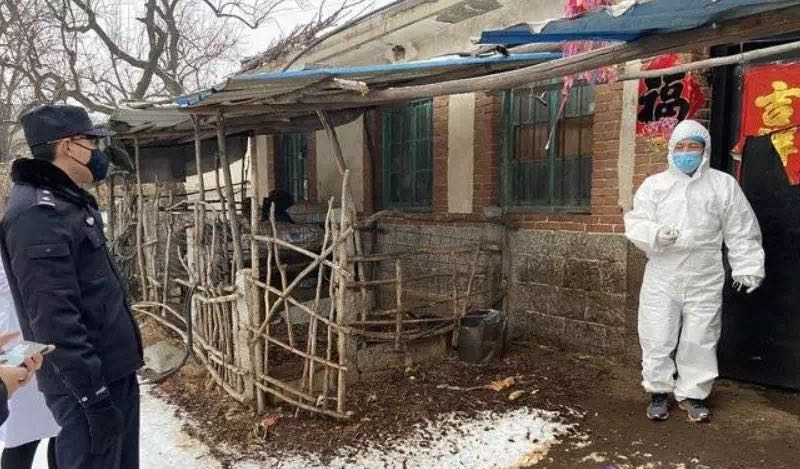
Wang Chuanbin, a post-90s policeman, had stayed in the local police station without going home for over 30 days right after Spring Festival. After constantly staying up late for quite a time, he suddenly fainted and is still unconscious owing to a head injury.
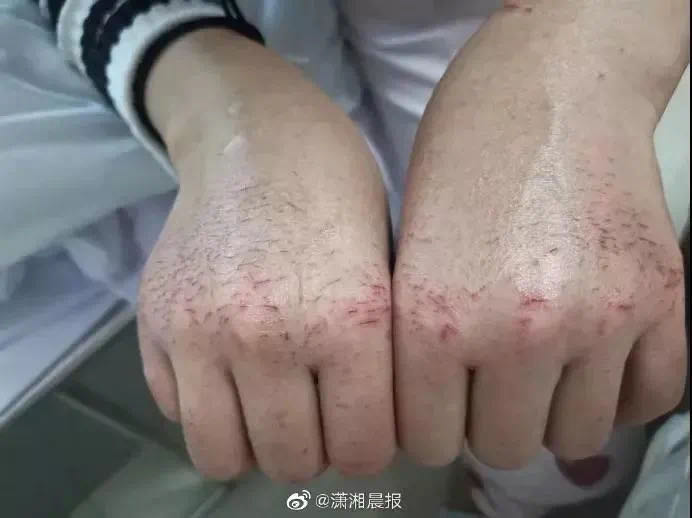
The picture shows the hands of 22-year-old nurse Hu Pei, who works in the infectious disease department of Hunan Children’s Hospital in central China’s Hunan Province. She worked for about eight hours in the protective suit in the isolation wards every day.
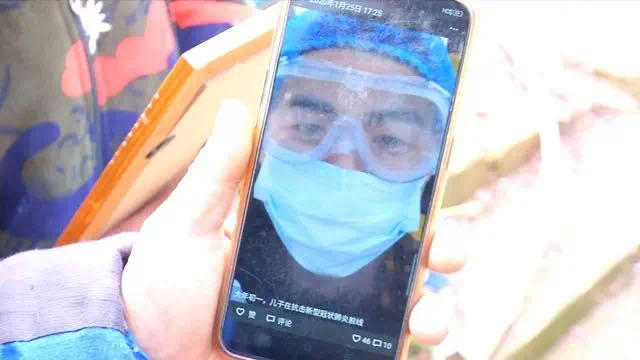
Song Yingjie, a 28-year-old doctor, had helped to check temperatures at motorway toll booths, as well as to distribute medical supplies in the area since the Spring Festival. But after finishing his shift on February 3, Song died from cardiac arrest believed to be brought on by exhaustion.
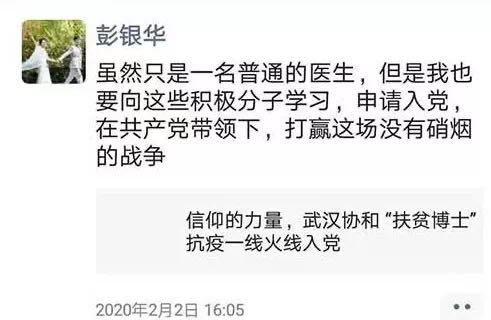
Peng Yinhua, a 29-year-old doctor at the First People's Hospital of Jiangxia District, died from the coronavirus on February 20, leaving behind his pregnant wife and a wedding yet to be held.
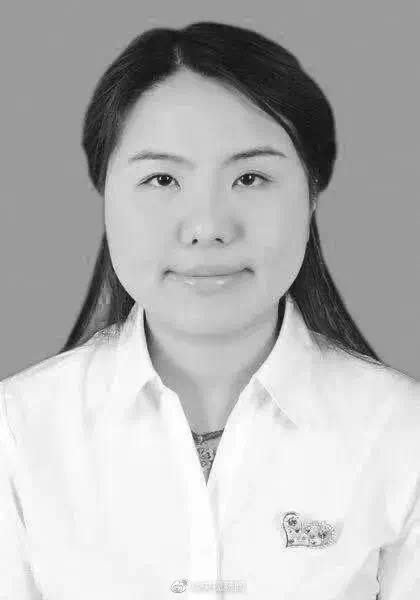
Xia Sisi, also 29, a frontline doctor, became infected while working and gave up her bed in the ICU to help other patients. She wanted to return to her position after her recovery but died of the virus on February 23.
(Photos from web; Compiled by Jiao Jingxian)


